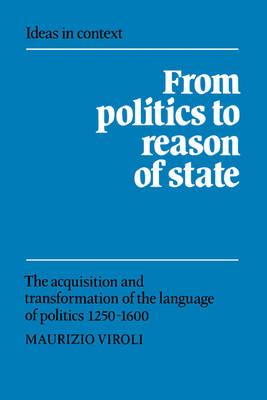Ideas in Context
1 total work
Between the end of the sixteenth and the beginning of the seventeenth centuries, the language of politics underwent a radical transformation. The author argues that this transformation amounted to a 'revolution of politics', global in scope, and wide-ranging in its intellectual and moral implications. Not only did the meaning and the range of application of the concept of politics change, but also the status of political science, the role of political education, and the value of political liberty. For three centuries politics had enjoyed the status of the noblest human science, but emerged from the revolution as an ignoble, sordid and depraved activity. It was no longer the means of fighting corruption, but the means of perpetuating it. This 'revolution of politics' has received little attention, despite its importance. This study fills a gap in the history of political thought, and attempts to return to a conception of politics as an activity worth committing ourselves to.
